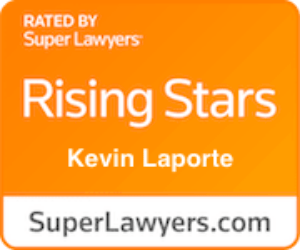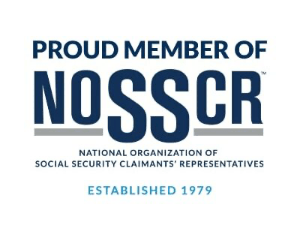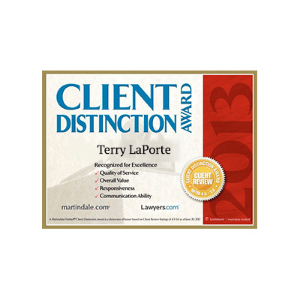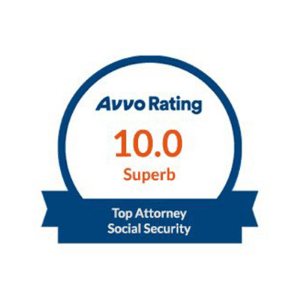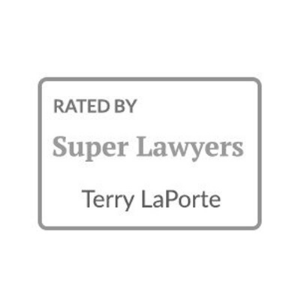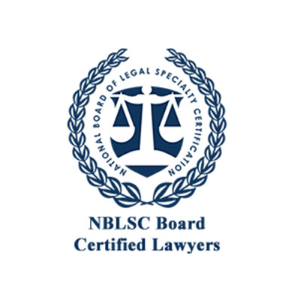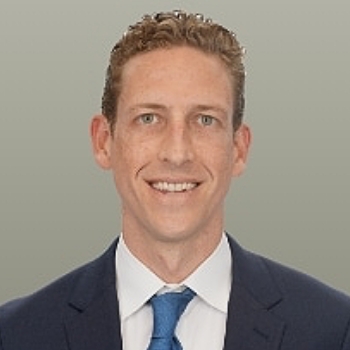The SSDI Podcast - EP10

- AUDIO TRANSCRIPT
Speaker 1 0:00
Hey everyone, and welcome back to the deep dive. So today, we’re going to be diving into something that you all specifically requested, and that is medical records in Social Security disability cases. All right, you guys had some questions about like, how the SSA actually uses those records to decide whether or not someone qualifies for benefits. A big one, huge, yeah. So to break this down, we’re looking at some info from the Laporte law firm, okay, they are social security disability specialists, gotcha. And they have this blog post that really breaks all down. All right, so this is going to be interesting, because I was looking at this stuff, yeah, and, like, I was surprised by a couple of things, like, what? Like, okay, so first of all, did you know that the SSA might actually look at your records from like, a whole year? Oh, wow, before you even claimed your disability started, that’s a long time. Yeah? And then get this chiropractor’s notes could actually help your case, really, I know, right? Yeah, wild stuff. Okay, so let’s get into it. Yeah, let’s
Unknown Speaker 1:03
break it down. Okay, so
Speaker 1 1:04
first things first, this whole thing about the alleged Onset date, right now, this isn’t when you filed for disability, it’s the date that you say your disability actually started impacting your ability to work. Yeah,
Speaker 2 1:18
what’s so important about this is that the SSA, okay, uses this date as, like, their starting point for their whole investigation. Gotcha. So
Speaker 1 1:27
it’s like setting the stage Exactly, okay, so then they want records from the 12 months before that date, right? But why a whole year before?
Speaker 2 1:34
Well, you have to remember that the SSA, they’re not just looking for proof that you’re sick, like right now they’re trying to get the whole picture, like, how your condition has, like, developed over time, right? And how it’s been affecting your ability to work consistently.
Speaker 1 1:50
So those 12 months of records before the alleged Onset date, yeah, are kind of like, setting the scene exactly for the SSA to be like, Okay, this is how things were going. This is how they progressed, yeah, it
Speaker 2 2:01
shows the pattern of your disability and how it’s impacting your life, especially your work life, which is a big deal to the SSA,
Speaker 1 2:08
okay, this is where that whole substantial gainful activity thing comes out, right? SGA, Yeah, huge, huge. So the 2024, income limit is 15, $550 a month, right?
Speaker 2 2:19
So if you’re making more than that, you might not be eligible for benefits, right? But here’s the
Speaker 1 2:25
thing, even if you were working, but making less than that SGA limit, it
Speaker 2 2:31
could actually help your case, yeah, and this is where a lot of people get tripped up,
Speaker 1 2:35
yeah, because it seems counterintuitive. It does. If you’re working, Shouldn’t that be like, think against you
Unknown Speaker 2:42
exactly.
Unknown Speaker 2:43
So how does that help? Well,
Speaker 2 2:44
it actually shows that you were trying to work despite your condition. Oh, you know, it demonstrates that you were pushing yourself, right, even though your health was making it harder to earn a
Speaker 1 2:55
living. So you’re basically saying, hey, look, I want to work. I’m trying to work, but it’s getting
Speaker 2 2:59
harder. Exactly? You’re not just sitting at home, right? You’re trying your best, okay,
Speaker 1 3:03
so then when it comes to medical records, yeah, it’s not just about seeing a doctor, right,
Speaker 2 3:08
right? Of course, seeing a doctor is important, yeah, but the SSA actually considers a wider range of medical sources, okay, so like, what? So we’re talking psychologists, optometrists, podiatrists, speech therapists, audiologists, nurse practitioners, okay,
Speaker 1 3:25
so it’s not just limited to your primary care doctor. No, it broadens the
Speaker 2 3:29
scope considerably. It means they’re taking a more holistic view of your health.
Speaker 1 3:34
Interesting. So then what about things like chiropractors, yeah, therapists, even like old school records. So
Speaker 2 3:41
those might not be considered like primary medical sources by their SSA, okay, but they can still provide valuable information. Oh, I see, remember, we’re talking about the big picture here, right? So, like with a chiropractor, even if they can’t diagnose the specific condition, right, their records can show how much it’s impacting you, you know,
Speaker 1 4:03
like the treatments, the limitations, all that stuff, exactly, okay? And then school records. How do those come in?
Speaker 2 4:10
Well, think about it, okay, they could show a history of challenges. Oh, right. Maybe accommodations you needed in school, things that might still be affecting you know, as an adult. So
Speaker 1 4:21
all these pieces of evidence, no matter where they’re from, yeah, are adding to the story of your disability,
Speaker 2 4:26
exactly. It’s like a tapestry. I like that. Each thread adds to the overall picture, beautiful.
Speaker 1 4:33
And now, one thing to keep in mind is that the SSA might actually already have some of your older records. Yeah, that’s a good point, especially if you’ve applied for disability before, right? So requesting those early on is probably a good idea. Definitely, it’s
Unknown Speaker 4:46
better to be safe than sorry, absolutely. Yeah. So now
Speaker 1 4:49
that we’ve kind of got the basics down, let’s talk about the specifics. Okay, let’s dive deeper, like, what types of medical records does the SSA really look for? Right? And what. Makes those records so valuable in building a strong case, let’s do it awesome. Let’s take a quick break, and then we’ll get into that right after this. All
Speaker 2 5:07
right, so let’s break down these medical records. The SSA, they really want to see records from what they call acceptable medical sources, and that usually means licensed professionals, you know, doctors, psychologists, specialists, the folks who can officially diagnose and treat your condition, right?
Speaker 1 5:25
But earlier, we were talking about, like, chiropractors, therapists, even those old school records, right? So how do those fit in? Well, they
Speaker 2 5:33
might not be primary medical sources in the eyes of the SSA, okay, but they can still be super valuable. Okay, it’s all about, like, remember that complete picture, right, of your disability. So
Speaker 1 5:44
even if, like, a chiropractor can’t officially diagnose the thing that’s keeping you from working, yeah, their records can still show how much it’s impacting you,
Speaker 2 5:54
exactly like those consistent visits, the treatments they’ve tried, right? That all helps show the ongoing nature of your limitations, right? And then school records, yeah, they can show a history of challenges, maybe accommodations you needed way back when, right, things that might have continued affecting you as an adult,
Speaker 1 6:12
right? So it’s like each piece of evidence, yeah, no matter where it comes from, kind of adds to the story,
Speaker 2 6:19
adds another thread to the tapestry. Oh, I like that of your disability, yeah. Now one thing to remember, okay, is that the SSA might actually have some of your older records on file already, right, especially if you’ve applied for disability before. Oh, that’s right, so requesting those early on is probably a good idea, good
Speaker 1 6:36
point, just in case there are any delays. Exactly, okay, so let’s say you’re gathering all these records from all these different places, right? What’s the best way to organize them?
Unknown Speaker 6:45
That’s a great question,
Unknown Speaker 6:47
so that the SSA doesn’t get lost.
Speaker 2 6:49
Yeah, you don’t want them to be overwhelmed, right? Exactly. So honestly, chronological order is your best friend here. Start with the earliest records and work your way forward. So basically, like a timeline, exactly a timeline of your medical history. And why is that so important? Because it lets the SSA see the progression, okay, how it started, how it’s gotten worse, and ultimately, how it’s prevented you from working consistently. So
Speaker 1 7:15
they’re not just seeing like random doctor’s visits. Yeah, they’re seeing the whole story unfold, exactly the whole narrative, Okay, gotcha. And to make it even easier, yeah, you were saying maybe use dividers or folders to separate, like, different years, yeah,
Unknown Speaker 7:27
different years, different providers, even Okay, so,
Speaker 1 7:30
like, I’m picturing this really organized binder, each section neatly labeled, yes, very professional. Yeah. Is there anything else? Oh, absolutely. That can make it even better.
Speaker 2 7:41
How about a table of contents or an index? Okay,
Unknown Speaker 7:44
that’s the next level, right?
Speaker 2 7:45
It’s like giving them a roadmap to your medical history, okay, I’m sold, right? It saves everyone time, and it shows you’re serious. Chronological
Speaker 1 7:52
order, dividers, table of contents, I’m taking notes. Great. And one
Speaker 2 7:56
more thing, okay, about this whole organizing thing, accuracy is super important, right? Double
Speaker 1 8:02
check those dates, yes. Make sure everything’s in order, no missing pages or anything
Speaker 2 8:06
Exactly. If you notice any discrepancies or missing info, don’t panic. Okay, just reach out to the provider or the SSA and ask for help.
Speaker 1 8:16
It’s better to fix it now, yes, then have it come back and bite you later.
Speaker 2 8:20
Absolutely, thoroughness and accuracy are key. Okay, so
Speaker 1 8:24
let’s say someone’s done all this, okay, they’re feeling super organized, yeah, but then they realize some key records are missing, uh, oh, like, maybe they switch doctors or a clinic closed down. Happens
Speaker 2 8:37
all the time. We do. So there are definitely things you can do to try and track down those missing records. Okay, give us the inside scoop. All right. So first, retrace your steps. Okay, think about all the healthcare providers you’ve seen, even for just a single visit during the time your claim covers. Okay, reach out to each of them. You never know where those records might have ended up.
Speaker 1 8:56
So even if it was like a quick checkup or referral, absolutely, it’s worth reaching out. It’s worth a shot. Okay? And don’t forget hospitals and clinics, right?
Speaker 2 9:06
If you were ever hospitalized or received treatment at a clinic, contact them too. Okay,
Speaker 1 9:12
what about like those cases where a provider closed their practice, yeah,
Unknown Speaker 9:17
or moved it’s a tough one. Is there any hope? There is try
Speaker 1 9:21
contacting the State Medical Board, okay, or the Licensing Board for their profession. Gotcha, they often keep records of close practices, huh? And they can sometimes direct you to where those records are. Now,
Speaker 2 9:33
that’s amazing, okay, but let’s say worst case scenario, okay, you’ve tried everything, and some records are truly gone.
Speaker 1 9:40
It happens. What then? Well, in those situations, you might need to consider alternative forms of evidence.
Unknown Speaker 9:46
Okay, so
Unknown Speaker 9:47
what are we talking about? So think about it. What other
Speaker 2 9:50
information could you use to back up your story? Maybe statements from friends, family members or former employers you can actually. Talk about your limitations, yeah? Like first hand accounts Exactly. It’s not just words on paper, right? It’s real people who have seen you struggle.
Speaker 1 10:08
And don’t underestimate the power of things like journals or diaries. Oh, that’s a good one, if you’ve been keeping track of your symptoms and stuff. Yeah, that could be really powerful, too.
Speaker 2 10:18
It shows you’ve been living with this documenting it, this is your reality.
Speaker 1 10:23
So even if you can’t find every single medical record, there are still ways to build a strong case. Absolutely. Okay, so we’ve covered how to request records, right? How to Organize them, what to do if they’re missing, yeah. Now let’s talk about presentation. Okay, so we touched on chronological order and all that. But what else can make those records really shine?
Speaker 2 10:45
Presentation is key. First and foremost, make sure those records are legible, right? No faded copies, handwritten scribbles that no one can read, or documents that are like falling apart. The
Unknown Speaker 10:59
SSA needs to be able to read them exactly right. If it’s
Speaker 2 11:02
hard to decipher, okay, consider retyping or scanning those problem documents. Gotcha. Now you might be tempted to highlight things. No, yeah, but I would actually advise against that, really. Why? Yeah, because it can sometimes be seen as you trying to, like, influence their decision. Oh,
Speaker 1 11:20
so it’s better to let the records speak for themselves. Yeah, let the SSA do their job. Go find what’s important. What about like adding context to the records that can be helpful? Okay,
Speaker 2 11:30
especially if you have records from a bunch of different providers, or if there are any gaps in your treatment history. So
Speaker 1 11:37
for example, if you switch doctors because you’ve moved right, changed insurance. Yeah, you might want to explain that exactly,
Speaker 2 11:44
just a little note like, Okay, switch doctors due to relocation. Gotcha can clear up any confusion, right?
Speaker 1 11:49
Good point. Now, what about summarizing your medical history? I
Speaker 2 11:53
think that’s a great idea, okay, especially if it’s complex, yeah, a concise summary can be super helpful for the SSA, so
Speaker 1 12:01
it’s like giving them a roadmap to your records exactly like
Speaker 2 12:05
the executive summary before they dive into the full report. I love that. Okay, any other presentation tips? Yeah? What else? Make sure your records are securely bound or fastened together. Okay, no paper clips or loose pages, right? You want it to all stay together exactly. Yeah, a sturdy binder or folder. Yes. And one last very important tip, okay, hit me. Make sure your name and social security number are clearly labeled right on every single page.
Speaker 1 12:31
On every single page, no room for error. There. Gotcha. So to recap, legible, yes, avoid highlighting. Add context where needed, yeah, consider a summary, bind it all together, yes, and label, label, label, label, exactly
Unknown Speaker 12:47
got it. Okay, so
Speaker 1 12:49
we’ve covered requesting, organizing and presenting like pros we have before we move on. I want to touch on something we briefly mentioned earlier, okay, and that’s protecting your privacy, right? That’s a big one. Yeah, this is sensitive stuff. It is. So how do we keep those records safe and secure?
Speaker 2 13:06
That’s a great question. Let’s talk about that. Yeah, yeah. So first of all, okay, be mindful of who you’re sharing your records with, right? Only share them with people you trust, okay, like your lawyer or advocate, and the organizations that are like directly involved in your disability claim, so
Speaker 1 13:24
no posting them on social media or any common sense
Speaker 2 13:27
stuff, right, right? And when you do need to share them electronically, yeah, make sure you’re using secure methods, okay? So
Speaker 1 13:33
like encrypted email, yeah, secure file transfers, exactly things
Speaker 2 13:37
like that. And always, always, password protect any digital files that have your medical information. It’s like
Speaker 1 13:45
locking up your filing cabinet in the digital world, Okay, makes sense. Now. What about those paper records? Yeah,
Unknown Speaker 13:50
good old fashioned paper Yeah.
Unknown Speaker 13:53
Any tips for keeping those safe? So a locked file cabinet
Speaker 2 13:56
or a safe is always a good option, okay, keep them somewhere safe, dry and protected from damage or sight,
Speaker 1 14:03
out of mind, exactly and definitely, out of reach of prying eyes, right? And
Speaker 2 14:07
when it comes time to get rid of them, yeah, shredding is your best friend. Okay? Invest in a good quality shredder and shred any documents. Okay with your personal medical information, never
Speaker 1 14:22
just throw them in the trash. No, right? Absolutely not. Identity theft is a real concern, huge, especially with medical records. It’s
Speaker 2 14:28
a gold mine for criminals, right? So it’s worth taking those extra steps to protect yourself.
Speaker 1 14:33
Okay? So to recap, our privacy tips, okay, let’s do it. Be careful who you share your records with. Yes, use secure methods for sharing electronically, password, protect everything, store those paper records safely, yes and always, always shred before discarding. You got it? Okay?
Speaker 2 14:53
I feel like we have armed our listener, yeah, with an arsenal of knowledge gathering, organized. Amazing, presenting and even protecting their medical records. Absolutely
Speaker 1 15:03
we covered it all we did. It’s been a journey. It has. I feel empowered, me too.
Speaker 2 15:08
But before we wrap up, okay, I want to circle back to the importance of having an expert in your corner. Yes, the
Speaker 1 15:14
value of a good Disability lawyer or advocate cannot be overstated. Absolutely not. Now,
Speaker 2 15:21
they are invaluable. It’s like, they’re not just legal experts, right? They’re like, guides, strategists, sometimes even therapists rolled into one. That’s a great way to put it. They understand all the ins and outs of this stuff they
Speaker 1 15:32
do. They know the SSA is regulations inside and out, right? And they can help you with, like, literally
Unknown Speaker 15:36
every step of the process. Yeah? It’s like
Speaker 1 15:38
having a guide, yeah? Mountain, right? You know, they know the safest path, they can anticipate the challenges and help you reach the summit. That’s a great analogy. Yeah, and don’t forget the emotional support, right? Because this stuff is stressful. It is. It’s a very stressful process, and it can be isolating, absolutely. So to have someone there who like gets it, yeah, is huge. Absolutely. Okay, so we covered medical records. We did how to get them, organize them, present them, protect them. We even talked about seeking expert help. We did. I think we’ve given our listeners everything they
Speaker 2 16:11
need. Yeah, I think we’ve equipped them with a ton of information and practical tips, absolutely, to help them navigate this journey. Okay, before we
Speaker 1 16:19
sign off, okay, one final thought, right, right. Remember, your medical records are more than just pieces of paper. They are they tell your story. Yes, your experiences, your challenges, your resilience. It’s your narrative. Make sure that story is told clearly, thoughtfully and authentically, beautifully said. So with that, we’ll wrap up our deep dive all right, into the world of social security, disability and medical records. It’s been a pleasure. Thank you so much for joining us, and remember you’re not alone in this. Absolutely not there are resources and support systems out there. Yeah, keep learning, keep advocating for yourself, and keep believing in your strength
Unknown Speaker 17:01
until next time.
Unknown Speaker 17:05
Thanks for listening to the deep dive.
- Disclaimer: this podcast has been generated with the help of an Artificial Intelligence and is based on blog posts written by LaPorte Law Firm Disability expert attorneys. You can read all our latest blog posts here.

Helping clients win their cases for over 40 years
LaPorte Law Firm has been representing Social Security Disability claimants in the Bay Area since 1982. Since starting his practice specializing in Social Security Disability claims, Terry LaPorte has successfully represented thousands of disability claimants, with LaPorte Law Firm opening offices in San Jose, Oakland, San Francisco, Santa Cruz, Burlingame, Sacramento, and Hawaii.
We are a full-service law firm providing expert legal representation at all stages of the Social Security Disability benefits process. As a local law firm mainly servicing the Bay Area, we are familiar with the administrative judges at the San Jose, San Francisco, and Oakland hearing offices, as well as the staff at local Social Security field and hearing offices. In addition, with this being a federal area of law, we also represent clients all over the country.
Meet our attorneys
Our team of ethical, professional, and dedicated lawyers are the cornerstone of our success.

Terry LaPorte
Attorney

Kevin LaPorte
Attorney
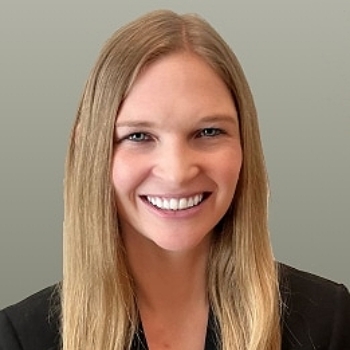
Kelsey LaPorte
Attorney
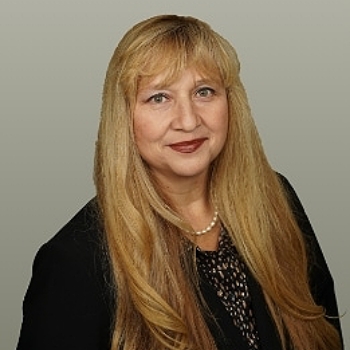
Maria Miranda-Hammon
Legal Representative
How it works:
- Complete the form so we can learn more about your situation.
- We will reach out within 48 hours to schedule your free, no-obligation consultation with an attorney.
- If your case can be pursued, we’ll start working on it.
- We only get paid if your case is approved.
How we can help:
- Free case evaluation by an attorney
- Social Security Disability Insurance application
- Social Security Disability Insurance appeal
- Disability hearing preparation
NO FEES UNLESS YOU WIN.
Award-winning service
Equipped with years of experience and thousands of successful cases, LaPorte Law Firm is the leading disability attorney in the Bay Area, and we have the awards and certifications to prove it.
